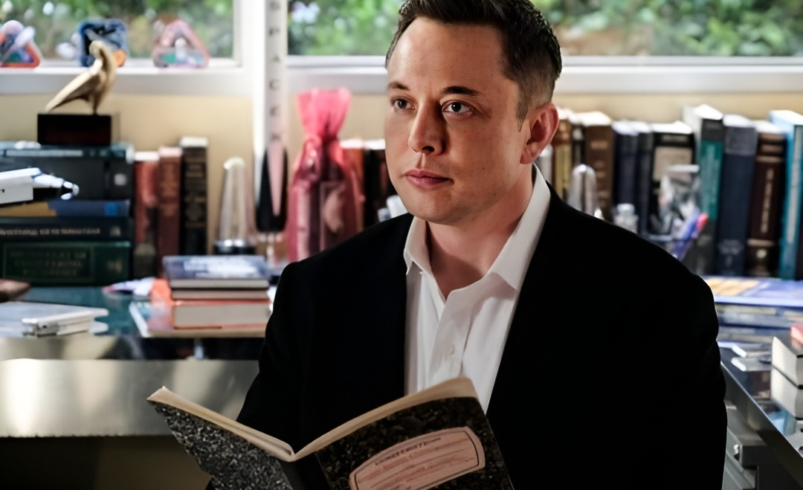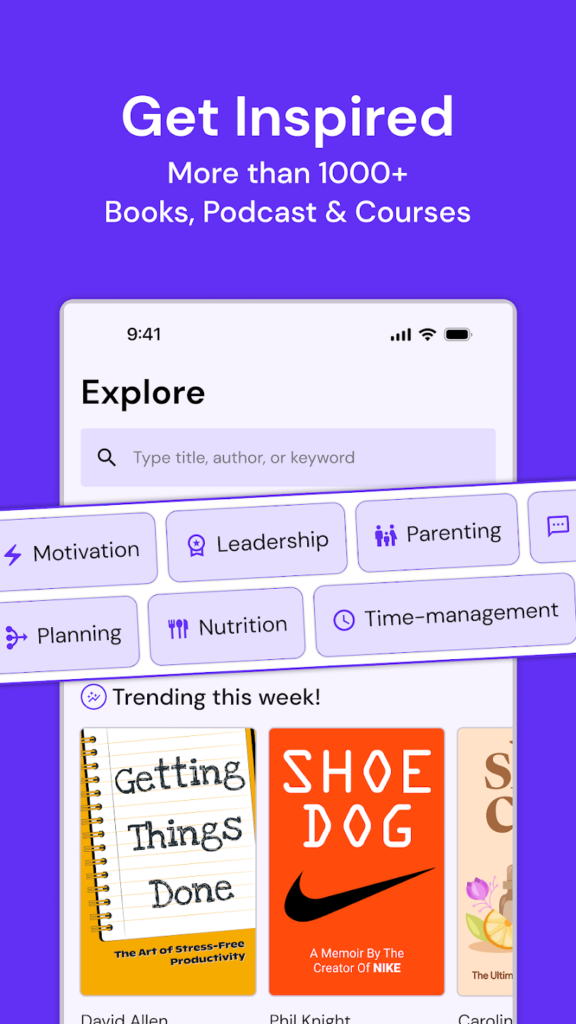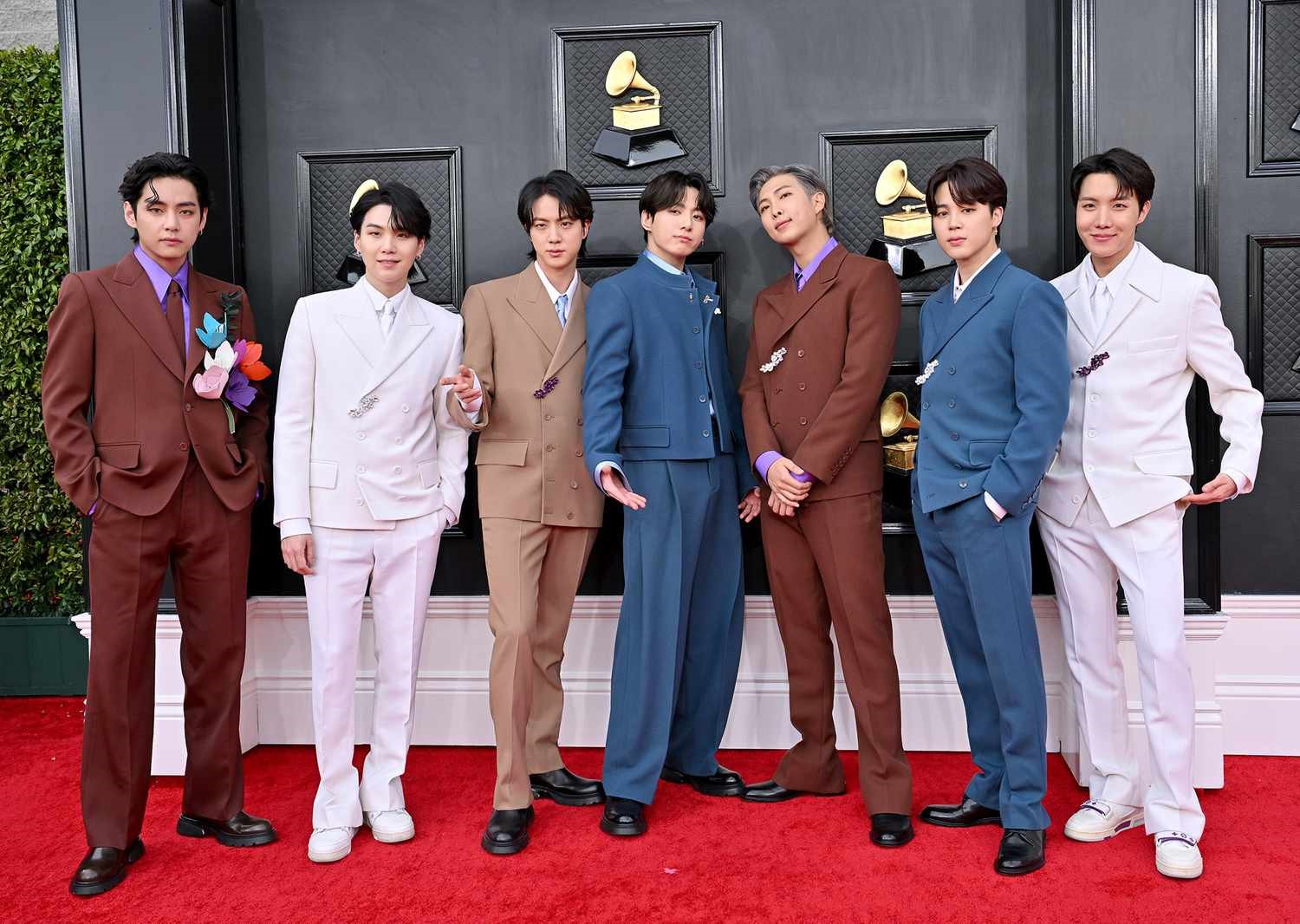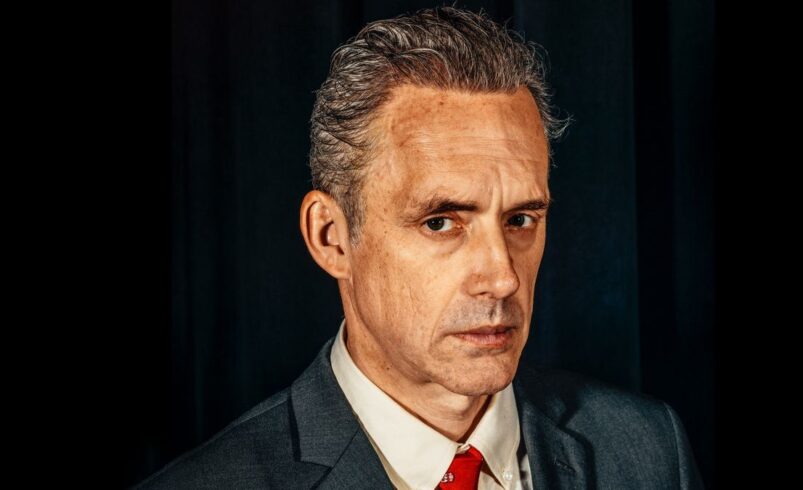
This article is your comprehensive guide to the 100+ books recommended by Jordan Peterson.
Jordan Peterson is a Canadian psychologist and author known for his insightful perspectives on psychology, philosophy, and cultural issues. Some of his notable books are:
- “Maps of Meaning: The Architecture of Belief”
- “12 Rules for Life: An Antidote to Chaos”
Apart from his books, Peterson is known for his strong opinions on individual responsibility, free speech, and the significance of mythology. He draws inspiration from a diverse range of sources, including psychological theories, religious texts, and classical literature. His thought-provoking ideas resonate with many seeking guidance in navigating the complexities of life.
Contents
- 1 Books Recommended by Jordan Peterson
- 2 Literature/ Philosophy Books Recommended by Jordan Peterson
- 2.1 A Farewell to Arms by Ernest Hemingway
- 2.2 1984 by George Orwell
- 2.3 Anna Karenina by Leo Tolstoy
- 2.4 Animal Farm by George Orwell
- 2.5 Beyond Good and Evil by Friedrich Nietzsche
- 2.6 Brave New World by Aldous Huxley
- 2.7 Cancer Ward: A Novel by Aleksandr Solzhenitsyn
- 2.8 Crime and Punishment by Fyodor Dostoevsky
- 2.9 Demons: A Novel in Three Parts by Fyodor Dostoevsky
- 2.10 East of Eden by John Steinbeck
- 2.11 For Whom the Bell Tolls by Ernest Hemingway
- 2.12 Fear and Loathing in Las Vegas: A Savage Journey to the Heart of the American Dream by Hunter S. Thompson
- 2.13 Flowers for Algernon by Daniel Keyes
- 2.14 Lord of the Flies by William Golding
- 2.15 Claudius From the Autobiography of Tiberius Claudius by Robert Graves
- 2.16 Island by Aldous Huxley
- 2.17 Life at the Bottom: The Worldview That Makes the Underclass by Theodore Dalrymple
- 2.18 On the Genealogy of Morals and Ecce Homo by Friedrich Nietzsche
- 2.19 One Flew Over the Cuckoos Nest by Ken Kesey
- 2.20 Notes from Underground by Fyodor Dostoevsky
- 2.21 Of Mice and Men by John Steinbeck
- 2.22 Point Counter Point by Aldous Huxley
- 2.23 Sometimes a Great Notion by Ken Kesey
- 2.24 The Anti-Christ by Friedrich Nietzsche
- 2.25 The Big Sleep by Raymond Chandler
- 2.26 The Road To Wigan Pier by George Orwell
- 2.27 The Fratricides by Nikos Kazantzakis
- 2.28 The First Circle by Aleksandr Solzhenitsyn
- 2.29 The Brothers Karamazov by Fyodor Dostoevsky
- 2.30 The Electric Kool-Aid Acid Test by Tom Wolfe
- 2.31 The Gulag Archipelago Volume 1, 2, 3 & 4: An Experiment in Literary Investigation by Aleksandr I. Solzhenitsyn
- 2.32 The Grapes of Wrath by John Steinbeck
- 2.33 The Gay Science by Friedrich Nietzsche
- 2.34 The Horse’s Mouth by Joyce Cary
- 2.35 The Long Goodbye by Raymond Chandler
- 2.36 The House of God by Samuel Shem
- 2.37 The Idiot by Fyodor Dostoevsky
- 2.38 The Maltese Falcon by Dashiell Hammett
- 2.39 To Kill a Mockingbird by Harper Lee
- 2.40 Zorba the Greek by Nikos Kazantzakis
- 2.41 Zen and the Art of Motorcycle Maintenance: An Inquiry into Values by Robert M Pirsig
- 2.42 The Stone Angel by Margaret Laurence
- 2.43 The Red and the Black by Stendhal
- 2.44 The Will to Power by Friedrich Nietzsche
- 2.45 Wuthering Heights by Emily Bronte
- 2.46 The Old Man and The Sea by Ernest Hemingway
- 2.47 War and Peace by Leo Tolstoy
- 2.48 Tolstoy by Henri Troyat
- 2.49 The Master and Margarita by Mikhail Bulgakov
- 2.50 The Charterhouse of Parma by Stendhal
- 3 Clinical Psychology and Psychiatry Books Recommended by Jordan Peterson
- 3.1 An Outline of Psycho Analysis by Sigmund Freud
- 3.2 A Way of Being by Carl R. Rogers
- 3.3 Aion (Collected Works of C. G. Jung)
- 3.4 Answer to Job: (From Vol. 11 of the Collected Works of C. G. Jung)
- 3.5 The Archetypes and The Collective Unconscious (Collected Works of C.G. Jung Vol.9 Part 1) (The Collected Works of C. G. Jung, 10)
- 3.6 Man’s Search for Meaning by Viktor E. Frankl
- 3.7 Genius: The Natural History of Creativity by H. J. Eysenck
- 3.8 Modern Man In Search of a Soul by C.G. Jung
- 3.9 Mysterium Coniunctionis by C.G. Jung
- 3.10 Play Dreams & Imitation in Childhood by Jean Piaget
- 3.11 Psychology and Alchemy by C.G. Jung
- 3.12 Symbols of Transformation by C.G. Jung
- 3.13 The Denial of Death by Ernest Becker
- 3.14 The Discovery of the Unconscious by Henri E. Ellenberger
- 3.15 The Great Mother by Erich Neumann
- 3.16 The Moral Judgement of the Child by Jean Piaget
- 3.17 The Interpretation of Dreams by Sigmund Freud
- 3.18 The Origins and History of Consciousness by Erich Neumann
- 3.19 Two Essays on Analytical Psychology by C.G. Jung
- 3.20 The Symbolic Life: Miscellaneous Writings by C.G. Jung
- 4 Neuroscience Books Recommended by Jordan Peterson
- 4.1 The Ecological Approach to Visual Perception by James J. Gibson
- 4.2 Affective Neuroscience: The Foundations of Human and Animal Emotions by Jaak Panksepp
- 4.3 An Anthropologist On Mars: Seven Paradoxical Tales by Oliver Sacks
- 4.4 Awakenings by Oliver Sacks
- 4.5 Brain Architecture: Understanding the Basic Plan by Larry W. Swanson
- 4.6 The Emotional Brain: The Mysterious Underpinnings of Emotional Life by Joseph Ledoux
- 4.7 The Neuropsychology of Anxiety: An Enquiry into the Functions of the Septo-Hippocampal System by Jeffrey A. Gray and Neil McNaughton
- 4.8 The Man Who Mistook His Wife For A Hat: And Other Clinical Tales by Oliver Sacks
- 4.9 The New Executive Brain: Frontal Lobes in a Complex World by Elkhonon Goldberg
- 5 Religion and Religious History Books Recommended by Jordan Peterson
- 5.1 A History of Religious Ideas, Volume 1, 2 & 3 by Mircea Eliade
- 5.2 The Bible
- 5.3 Mephistopheles: The Devil in the Modern World by Jeffrey Burton Russell
- 5.4 Myth and Reality by Mircea Eliade
- 5.5 Myths Dreams and Mysteries by Mircea Eliade
- 5.6 Shamanism: Archaic Techniques of Ecstasy by Mircea Eliade
- 5.7 The Forge and the Crucible by Mircea Eliade
- 5.8 The Crisis of Islam: Holy War and Unholy Terror by Bernard Lewis
- 5.9 The Great Code: The Bible and Literature by Northrop Frye
- 5.10 The World’s Religions by Huston Smith
- 5.11 The Sacred and the Profane by Mircea Eliade
- 5.12 Words with Power: Being a Second Study of “The Bible and Literature” by Northrop Frye
- 6 History and System Analysis
- 6.1 Little Science, Big Science…and Beyond by Derek J. de Solla Price
- 6.2 Systemantics: How Systems Work and Especially How They Fail by John Gall drawings by Ft O Blechman
- 6.3 Stalin: The First In-depth Biography Based on Explosive New Documents from Russia’s Secret Archives by Edward Radzinsky
- 6.4 The Mystery of Capital: Why Capitalism Triumphs in the West and Fails Everywhere Else by Hernando De Soto
- 6.5 The Rise of Statistical Thinking, 1820-1900 by Theodore M. Porter
- 6.6 The Rise and Fall of the Third Reich: A History of Nazi Germany by William L. Shirer
- 7 The State of the World: A 21st Century Update
- 7.1 How to Spend $75 Billion to Make the World a Better Place by Bjørn Lomborg
- 7.2 Enlightenment Now: The Case for Reason, Science, Humanism, and Progress by Steven Pinker
- 7.3 Factfulness: Ten Reasons We’re Wrong About the World–and Why Things Are Better Than You Think by Hans Rosling with Ola Rosling and Anna Rosling Ronnlund
- 7.4 Earth in Human Hands: Shaping Our Planet’s Future by David Grinspoon
- 7.5 Progress: Ten Reasons to Look Forward to the Future by Norberg Johan
- 7.6 The Great Escape: Health, Wealth, and the Origins of Inequality by Angus Deaton
- 7.7 The Rational Optimist: How Prosperity Evolves by Matt Riddley
- 8 Conclusion
Books Recommended by Jordan Peterson
From philosophy, history, and politics to psychology and neuroscience, the books recommended by Jordon Peterson cover a broad range of genres. Most of his reads, for which he gives credit, have influenced and inspired him in such a way that the taste of them lingers in his own literary works. Here’s a categorized list of the books recommended by Jordan Peterson.
Literature/ Philosophy Books Recommended by Jordan Peterson
A Farewell to Arms by Ernest Hemingway
War-scarred love finds bittersweet solace amidst WWI tragedy.
1984 by George Orwell
Big Brother watches in a dystopian future where freedom is an illusion.
Anna Karenina by Leo Tolstoy
A passionate love triangle ignites social scandal and tragic downfall in opulent Russia.
Animal Farm by George Orwell
Orwell’s satirical fable uses barnyard animals to expose the perils of totalitarian power.
Beyond Good and Evil by Friedrich Nietzsche
Nietzsche challenges morality and embraces self-creation in a provocative philosophical treatise.
Brave New World by Aldous Huxley
Genetic engineering and manufactured happiness create a chillingly perfect, yet soulless, utopia.
Cancer Ward: A Novel by Aleksandr Solzhenitsyn
Solzhenitsyn’s sweeping epic confronts illness, mortality, and the resilience of the human spirit in Soviet Russia.
Crime and Punishment by Fyodor Dostoevsky

Raskolnikov’s philosophical justifications for murder unravel amidst guilt and psychological torment.
Demons: A Novel in Three Parts by Fyodor Dostoevsky
Dostoevsky delves into the dark underbelly of St. Petersburg society, where revolutionary fervor and paranoia collide.
East of Eden by John Steinbeck
Steinbeck’s sprawling saga explores family secrets, biblical parallels, and the search for meaning in the American West.
For Whom the Bell Tolls by Ernest Hemingway
American idealist fights in Spanish Civil War, facing love, loyalty, and death.
Fear and Loathing in Las Vegas: A Savage Journey to the Heart of the American Dream by Hunter S. Thompson
Gonzo journalist’s drug-fueled odyssey through a psychedelic American nightmare.
Flowers for Algernon by Daniel Keyes
Mentally-challenged man experiences genius for a fleeting, heartbreaking moment.
Lord of the Flies by William Golding
Shipwrecked boys descend into savagery, questioning the nature of good and evil.
Claudius From the Autobiography of Tiberius Claudius by Robert Graves
Roman emperor Claudius recounts his rise to power through intrigue, betrayal, and dark humor.
Island by Aldous Huxley
A utopian society built on pacifism and genetic engineering faces a moral crisis.
Life at the Bottom: The Worldview That Makes the Underclass by Theodore Dalrymple
Sociologist’s controversial look at the underclass and the values that trap them.
On the Genealogy of Morals and Ecce Homo by Friedrich Nietzsche
Nietzsche’s radical re-evaluation of morality and his self-proclaimed role as prophet.
One Flew Over the Cuckoos Nest by Ken Kesey
Mental patients expose the hypocrisy of an oppressive mental institution.
Notes from Underground by Fyodor Dostoevsky
Dostoyevsky’s introspective anti-hero wrestles with alienation and societal norms.
Of Mice and Men by John Steinbeck
Dreams collides with harsh realities for migrant workers during the Great Depression.
Point Counter Point by Aldous Huxley
A decadent London set navigates love, sex, and disillusionment in the interwar years.
Sometimes a Great Notion by Ken Kesey
Family tensions explode as an Oregon logging family pursues an ill-fated timber venture.
The Anti-Christ by Friedrich Nietzsche
Nietzsche’s controversial critique of Christianity and calls for the “revaluation of all values.”
The Big Sleep by Raymond Chandler
Private detective Philip Marlowe unravels a complex web of blackmail and murder in Los Angeles.
The Road To Wigan Pier by George Orwell
Orwell’s firsthand account of poverty and inequality in the north of England during the Depression.
The Fratricides by Nikos Kazantzakis
Greek mythology meets modern psychology in Kazantzakis’ exploration of sibling rivalry and betrayal.
The First Circle by Aleksandr Solzhenitsyn
Solzhenitsyn’s fictionalized chronicle of Soviet scientists imprisoned in a Stalinist gulag.
The Brothers Karamazov by Fyodor Dostoevsky
Dostoyevsky delves into faith, family, and murder in 19th-century Russia.
The Electric Kool-Aid Acid Test by Tom Wolfe
Wolfe’s immersive reportage on Ken Kesey and the rise of the Merry Pranksters and LSD counterculture.
The Gulag Archipelago Volume 1, 2, 3 & 4: An Experiment in Literary Investigation by Aleksandr I. Solzhenitsyn
Solzhenitsyn’s monumental exposé of the Soviet prison system and its devastating impact on millions.
The Grapes of Wrath by John Steinbeck
Steinbeck’s epic saga of the Joad family’s desperate migration during the Dust Bowl.
The Gay Science by Friedrich Nietzsche
Nietzsche’s playful and provocative philosophical inquiry into knowledge, morality, and joy.
The Horse’s Mouth by Joyce Cary
Cary’s satirical romp through the art world follows a bohemian painter’s struggle for artistic freedom.
The Long Goodbye by Raymond Chandler
Marlowe tackles another labyrinthine case involving blackmail, stolen art, and a missing wife.
The House of God by Samuel Shem
A darkly humorous coming-of-age story about a medical student disillusioned by the realities of American healthcare.
The Idiot by Fyodor Dostoevsky
Dostoyevsky’s portrait of a naive prince navigating a corrupt St. Petersburg society.
The Maltese Falcon by Dashiell Hammett
Private detective Sam Spade hunts for a priceless statute and confronts the treacherous underworld of San Francisco.
To Kill a Mockingbird by Harper Lee
Scout Finch’s innocent perspective illuminates racial prejudice and moral courage in a small Southern town.
Zorba the Greek by Nikos Kazantzakis
Kazantzakis’s vibrant ode to life, passion, and unbridled hedonism through the eyes of a boisterous Greek man.
Zen and the Art of Motorcycle Maintenance: An Inquiry into Values by Robert M Pirsig
A philosophical road trip exploring quality, meaning, and reality.
The Stone Angel by Margaret Laurence
A fiercely independent woman reflects on her life and choices through poignant memories.
The Red and the Black by Stendhal
An ambitious young man from humble beginnings navigates love, politics, and betrayal in Napoleonic France.
The Will to Power by Friedrich Nietzsche
A controversial philosophical treatise delving into power, self-mastery, and the concept of the Übermensch.
Wuthering Heights by Emily Bronte
A haunting tale of love, revenge, and passion set against the backdrop of the wild Yorkshire moors.
The Old Man and The Sea by Ernest Hemingway
A minimalist yet powerful story of an aging fisherman’s epic struggle against the sea and his own mortality.
War and Peace by Leo Tolstoy
An expansive historical novel chronicling the lives of aristocratic families during Napoleon’s invasion of Russia, offering a profound reflection on human nature and history.
Tolstoy by Henri Troyat
A biographical exploration of the life and complex personality of the legendary author Leo Tolstoy.
The Master and Margarita by Mikhail Bulgakov
A satirical and fantastical novel which blends magic realism, social commentary, and religious allegory in Soviet Russia.
The Charterhouse of Parma by Stendhal
A historical novel set in 16th-century Italy that explores themes of love, intrigue, ambition, and the pursuit of happiness.
Clinical Psychology and Psychiatry Books Recommended by Jordan Peterson
An Outline of Psycho Analysis by Sigmund Freud
A concise handbook that summarizes Freud’s theories on the unconscious mind, the id, ego, superego, and psychoanalytic treatment.
A Way of Being by Carl R. Rogers
A humanistic psychologist’s exploration of self-actualization, genuineness, and living authentically.
Aion (Collected Works of C. G. Jung)
Jung’s intricate exploration of time, symbols, and the archetypes of the collective unconscious.

Answer to Job: (From Vol. 11 of the Collected Works of C. G. Jung)
An interpretation of the Biblical book of Job through the lens of Jungian psychology and the shadow archetypes.
The Archetypes and The Collective Unconscious (Collected Works of C.G. Jung Vol.9 Part 1) (The Collected Works of C. G. Jung, 10)
A foundational text introducing Jung’s concepts of archetypes, instincts, and the structure of the psyche.
Man’s Search for Meaning by Viktor E. Frankl
A psychiatrist’s firsthand account of surviving the Holocaust and finding meaning in life through suffering.
Genius: The Natural History of Creativity by H. J. Eysenck
A scientific investigation into the psychology of creativity and the characteristics of geniuses.
Modern Man In Search of a Soul by C.G. Jung
A call for individuation and reconnection with the deeper realms of the unconscious in modern society.
Mysterium Coniunctionis by C.G. Jung
A complex examination of alchemical symbolism and its connection to psychological integration and wholeness.
Play Dreams & Imitation in Childhood by Jean Piaget
Explores the significance of play, dreams, and imitation in children’s development and the emergence of the unconscious.
Psychology and Alchemy by C.G. Jung
A bridge between Jungian psychology and alchemical symbolism, tracing the archetypal patterns in both.
Symbols of Transformation by C.G. Jung
A rich investigation into symbolic meaning, myths, and their psychological significance across cultures.
The Denial of Death by Ernest Becker
Examines the human response to mortality and anxiety, arguing that much of human behavior seeks to overcome this fear.
The Discovery of the Unconscious by Henri E. Ellenberger
A historical and philosophical exploration of the concept of the unconscious mind from its early beginnings.
The Great Mother by Erich Neumann
A Jungian analysis of the archetypal mother figure and its influence on individual and collective psychology.
The Moral Judgement of the Child by Jean Piaget
Pioneered research on the development of moral reasoning and judgment in children.
The Interpretation of Dreams by Sigmund Freud
A foundational text of psychoanalysis, interpreting dreams as expressions of unconscious desires and conflicts.
The Origins and History of Consciousness by Erich Neumann
Analyzes the evolution of consciousness through cultural myths and symbols across different eras.
Two Essays on Analytical Psychology by C.G. Jung
Introduces key concepts of Jungian psychology, including individuation, complexes, and analytical methods.
The Symbolic Life: Miscellaneous Writings by C.G. Jung
A collection of shorter pieces exploring various aspects of Jungian psychology, symbolism, and alchemy.
Neuroscience Books Recommended by Jordan Peterson
The Ecological Approach to Visual Perception by James J. Gibson
Decodes how we naturally see the world beyond just receiving images.
Affective Neuroscience: The Foundations of Human and Animal Emotions by Jaak Panksepp
Unveils the core mechanisms driving emotions in humans and animals.
An Anthropologist On Mars: Seven Paradoxical Tales by Oliver Sacks
Sacks explores neurological curiosities, revealing surprising similarities between man and other creatures.
Awakenings by Oliver Sacks
Sacks chronicles the remarkable reawakenings of patients frozen in neurological time capsules.
Brain Architecture: Understanding the Basic Plan by Larry W. Swanson
Demystifies the basic blueprint of the brain and its intricate wiring.
The Emotional Brain: The Mysterious Underpinnings of Emotional Life by Joseph Ledoux
Unravels the hidden circuitry behind our emotional responses.
The Neuropsychology of Anxiety: An Enquiry into the Functions of the Septo-Hippocampal System by Jeffrey A. Gray and Neil McNaughton
Delves into the brain’s anxiety machinery and its hidden functions.
The Man Who Mistook His Wife For A Hat: And Other Clinical Tales by Oliver Sacks
Explores neurological oddities that challenge our understanding of self and perception.
The New Executive Brain: Frontal Lobes in a Complex World by Elkhonon Goldberg
Examines the crucial role of the frontal lobes in navigating a complex world.
Religion and Religious History Books Recommended by Jordan Peterson
A History of Religious Ideas, Volume 1, 2 & 3 by Mircea Eliade
Eliade’s monumental exploration of religion across history and cultures.
The Bible
The sacred text of Christianity, Judaism, and other Abrahamic religions.
Mephistopheles: The Devil in the Modern World by Jeffrey Burton Russell
Explores the Devil’s enduring influence in contemporary society.
Myth and Reality by Mircea Eliade
Eliade delves into the nature of myth and its connection to human experience.
Myths Dreams and Mysteries by Mircea Eliade
Eliade investigates the symbolic language of myths and dreams across cultures.
Shamanism: Archaic Techniques of Ecstasy by Mircea Eliade
Eliade analyzes shamanistic practices and their connection to altered states of consciousness.
The Forge and the Crucible by Mircea Eliade
Eliade’s study of alchemy and its symbolic connection to spiritual transformation.
The Crisis of Islam: Holy War and Unholy Terror by Bernard Lewis
Lewis examines the challenges and complexities facing Islam in the modern world.
The Great Code: The Bible and Literature by Northrop Frye
Frye analyzes the Bible’s literary structure and its influence on Western literature.
The World’s Religions by Huston Smith
Smith offers a comprehensive overview of major religious traditions.
The Sacred and the Profane by Mircea Eliade
Eliade explores the distinction between the sacred and the profane in various cultures.
Words with Power: Being a Second Study of “The Bible and Literature” by Northrop Frye
Frye expands his analysis of the Bible’s literary influence on various genres.
History and System Analysis
Little Science, Big Science…and Beyond by Derek J. de Solla Price
Explores the transformation of science from small-scale to massive enterprise and beyond.
Systemantics: How Systems Work and Especially How They Fail by John Gall drawings by Ft O Blechman
A humorous and insightful guide to understanding how systems work, emphasizing their potential for failure.
Stalin: The First In-depth Biography Based on Explosive New Documents from Russia’s Secret Archives by Edward Radzinsky
Unveils a fresh biography of the Soviet dictator based on newly-released secret documents.
The Mystery of Capital: Why Capitalism Triumphs in the West and Fails Everywhere Else by Hernando De Soto
Investigates why capitalism thrives in the West while struggling elsewhere.
The Rise of Statistical Thinking, 1820-1900 by Theodore M. Porter
Traces the historical evolution of statistical approaches in understanding the world.
The Rise and Fall of the Third Reich: A History of Nazi Germany by William L. Shirer
A comprehensive chronicle of Nazi Germany’s rise to power and eventual downfall.
The State of the World: A 21st Century Update
How to Spend $75 Billion to Make the World a Better Place by Bjørn Lomborg
Lomborg speaks about prioritizing impactful solutions to global problems using cost-benefit analysis.
Enlightenment Now: The Case for Reason, Science, Humanism, and Progress by Steven Pinker
Debunks pessimism and highlights progress in reason, science, and humanism.
Factfulness: Ten Reasons We’re Wrong About the World–and Why Things Are Better Than You Think by Hans Rosling with Ola Rosling and Anna Rosling Ronnlund
Challenges misconceptions about global development and reveales positive trends in health, wealth, and equality.
Earth in Human Hands: Shaping Our Planet’s Future by David Grinspoon
Explores humanity’s impact on the planet and potential solutions for a sustainable future.
Progress: Ten Reasons to Look Forward to the Future by Norberg Johan
Gives a reassuring look at ten reasons for optimism about the future, based on data and historical trends.
The Great Escape: Health, Wealth, and the Origins of Inequality by Angus Deaton
Unveils the forces driving global health and wealth improvements and examines the rise of inequality.
The Rational Optimist: How Prosperity Evolves by Matt Riddley
Celebrates innovation and human ingenuity as engines of progress and prosperity.
Conclusion
Books recommended by Jordan Peterson offer a thrilling journey into not just psychology but across various genres like philosophy, religion, history, and neuroscience. From timeless classics to contemporary introspective pieces, each of these reads opens doors to innumerable knowledge and soul-searching.
So, which of these recommendations are you reading next?
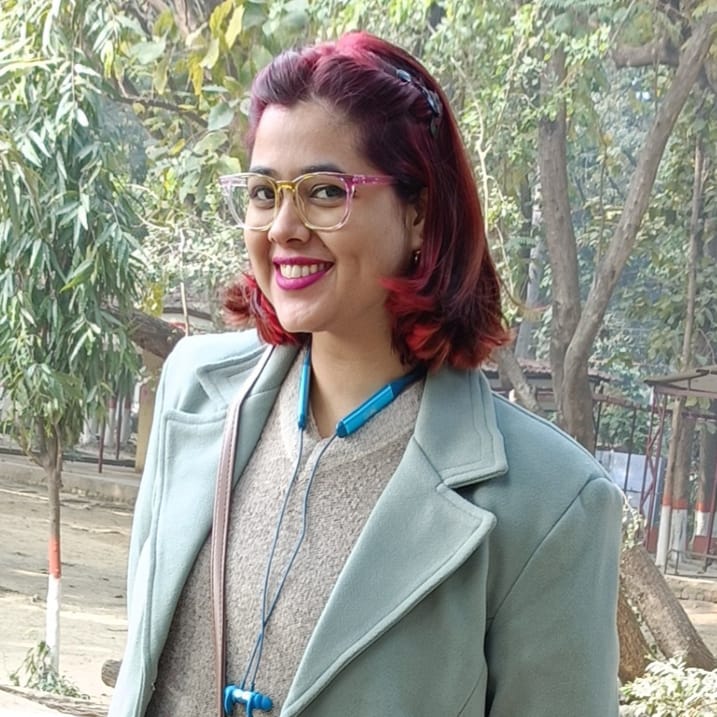
Layaba Noor
Layaba Noor, also known by the pen name Yarah Noor is an author and writer based in India. Apart from writing, Noor is a passionate reader who has deep admiration for literary giants like Haruki Murakami and Paulo Coelho.
Recent Posts
- Unleash Your Inner Entrepreneur- 15 Best Books for Entrepreneurial Success
- Financial Literacy Books: 15 Books To Read To Boost Your Financial Literacy
- Discipline Toolbox: Books to Read For a Disciplined Life
- Mindfulness Revolution: Top Meditation Books for a More Mindful World
- Stoic Philosophy for Everyday Life: Recommended books about Stoicism

